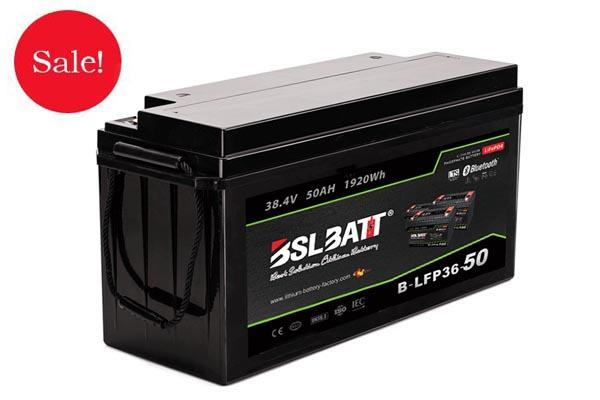A 36v lithium Ion battery is a type of lithium battery that uses a 36-volt DC power supply. It is used in electric vehicles, including buses, trucks, motorcycles, and bicycles.
What are the Benefits of a 36v Lithium Battery?
The benefits of a 36v lithium battery include a longer runtime, increased speed and torque, reduced weight, and improved fuel efficiency. These benefits make the battery an ideal choice for electric vehicles that require high performance and extended range.
In terms of runtime, a 36v lithium battery can last up to twice as long as a 12v battery. This means that the vehicle will be able to travel further before needing to be recharged. In addition, because the 36v lithium battery is capable of producing more power, the vehicle will have greater acceleration and torque. This makes it an ideal choice for vehicles that require high performance and agility.
Another benefit of using a 36v lithium battery is that it reduces weight. Because the battery pack is smaller in size, the overall weight of the vehicle will be reduced. This makes the vehicle easier to move and transport, which can be important in areas where parking is limited or expensive.
Finally, 36v lithium batteries are also more fuel efficient than 12v batteries. This means that they will use less fuel while still providing the same level of performance. In some cases, this could lead to significant savings on gas bills over time .
How Does a Lithium Ion Battery Work?
Lithium ion batteries are rechargeable batteries that use lithium ions to store energy. Lithium ion is a lightweight, non-toxic metal that is found in abundance in the earth’s crust. It is also one of the most common elements on Earth.
When a lithium ion battery is charging, lithium ions move from the anode (the negative electrode) to the cathode (the positive electrode). This reaction creates electricity and pushes out heat.
The lifespan of a lithium ion battery depends on how much it is used and how often it is charged. If a lithium ion battery is not used or charged for a long period of time, the cells will lose their ability to hold a charge and will need to be replaced.
What’s Wrong with Nickel Cadmium Batteries?
Nickel-cadmium batteries became popular in the early 1990s because they were cheap and had a long shelf life. But today, nickel-cadmium batteries are not recommended for use in electronics because they can be dangerous when they explode.
When a nickel-cadmium battery is charging or being used, it generates heat. Over time, this heat can cause the battery to deform and potentially explosion. In addition, nickel-cadmium batteries are prone to fires caused by short circuits.
So if you have one of these batteries in your electronics, be sure to keep it away from flammable materials and avoid short circuits.
Comparison Between NiCad and Li Ion Batteries
NiCad batteries are becoming increasingly less common in handheld devices, as Li Ion batteries become more popular. Here’s a comparison between the two types of batteries:
What is a NiCad battery?
NiCad batteries are a type of rechargeable battery made from nickel-cadmium. They have been around for many years and are still used in some devices, but they have largely been replaced by Li Ion batteries because they have longer life spans and can be charged more quickly.
What is a Li Ion battery?
Li Ion batteries are a type of rechargeable battery made from lithium ion. They were first developed in the late 1990s and have since become the most commonly used type of rechargeable battery in handheld devices. They offer many advantages over NiCad batteries, including faster charging times and longer life spans.
Choosing the Right Battery Manufacturer

When choosing a lithium ion battery manufacturer, there are a few things to consider. First, make sure the company has a good reputation and is experienced in manufacturing lithium ion batteries. Second, be sure to ask about the company’s testing and quality control procedures. Finally, make sure the price of the battery is fair.
Safety Concerns of 36v Lithium Battery
There are several safety concerns that should be considered when using a 36v lithium battery. These include the risk of fire, explosion, and poisoning.
Fire: 36v lithium batteries are highly combustible and can easily catch fire if they’re damaged or incorrectly used. If a battery catches on fire, it can quickly spread to other parts of the device and become dangerous.
Explosion: A 36v lithium Ion battery can also explode if it’s damaged or improperly used. This can cause serious injury or even death.
Poisoning: 36v lithium batteries can contain harmful chemicals that can lead to poisoning if ingested. If you’re concerned about the health risks associated with using a 36v lithium battery, please consult your healthcare provider before using it.





